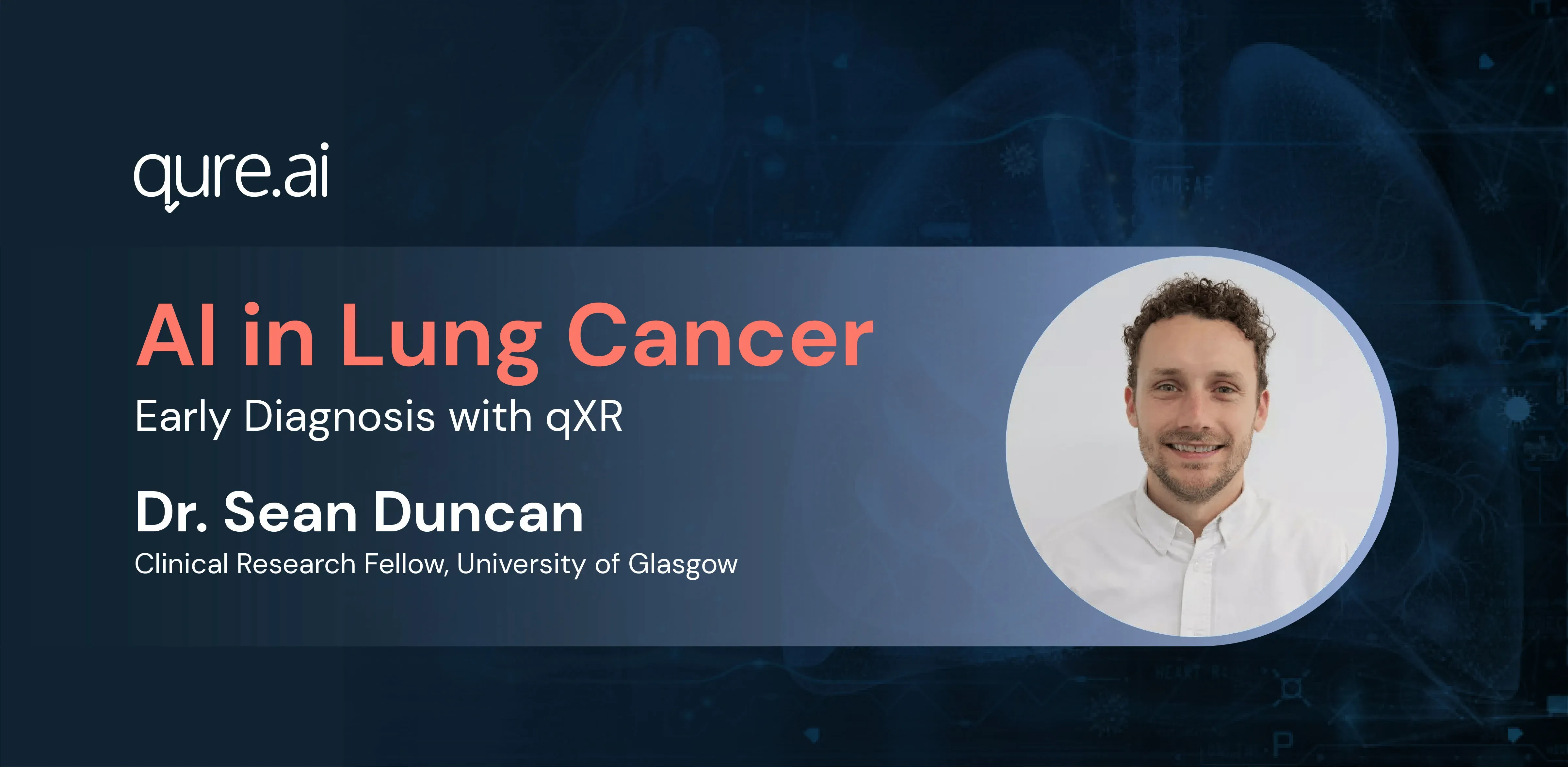Dr. Sean Duncan, Clinical Research Fellow at the University of Glasgow, is leading work on AI in lung cancer diagnostics as part of the RADICAL study. The project assesses how qXR chest X-ray technology can support early lung cancer detection in Scotland by acting as a rapid first-reader for chest X-rays. In Glasgow, where 72% of lung cancer cases are diagnosed at Stage 3 or 4, the goal is to reduce diagnostic delays and improve survival rates.
Back
Through the accelerated cancer diagnosis pathway, qXR flags suspicious chest X-rays for quicker radiologist review and CT scan scheduling. This process enables patients to receive further imaging and clinical evaluation within two to three days, an improvement over previous timelines.
Dr. Duncan highlighted that the AI implementation must consider stakeholder involvement, clinician workload, and clear communication. The project also explores the potential for multi-modality AI to contribute to deep phenotyping and treatment planning in the future.
In the context of the NHS Glasgow system, AI tools like qXR show potential to enhance efficiency, prioritize high-risk cases, and support better patient outcomes. However, successful adoption depends on aligning technology with workflow realities and resource constraints.
